|
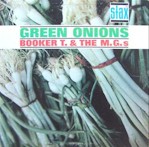
Genre: soul
Rating: ****
(4 stars)
Title: Green
Onions
Company: Stax
Catalog: S
701
Year: 1965
Country/State: Memphis,
Tennessee
Grade
(cover/record): VG+/VG
Comments: --
Available: 1
Catalog ID: 1755
Price: $35.00
|
Funny, but the
title track is one of my first musical memories. I can distinctly
remember hearing the song while being wheeled around by my parents in an
shopping cart in an Army commissary. Here I am five decades
later and the song still resonates with me.
"Green
Onions" track listing:
(side 1)
1.)
Green Onions (instrumental)
(Booker T. Jones
- Steve Cropper - Al Jackson - Lewis Steinberg) - 2:45
I'm
not what sure I can possible add to the conversation. Simply an
all-time classic slice of music. One of the few songs I could
put on a tape loop and play over and over and over without getting tired of
it.

-
1962's 'Green Onions' b/w 'Behave Yourself' (Stax catalog number S-127)
There
are dozens of 'Green Onion' clips online, but one of the best is from a 1966
Shindig performances: https://www.youtube.com/watch?v=ar-Z_l907DY
Almost as good is this
performance featuring Daryl Hall and his Live From Daryl's House band:
https://www.youtube.com/watch?v=2h5N4k2l3Hg
rating: ***** stars
2.)
Rinky Dink (instrumental) (David Clowney - Paul Winley) -
2:39
Dave
"Baby" Cortez had the original hit and there's was nothing more
than a throwaway cover, but so what ? Powered by Jones' Hammond M-1 (don;t
think he was playing a B-3 at this point in time),, this just drips
early-'60s vibe. rating:
*** stars
3.)
I Got a Woman (instrumental) (Ray Charles) - 3:32
No
reason for them to have wasted time and energy on this one.
Nothing can compare to the Ray Charles original.
rating: ** stars
4.)
Mo' Onions (instrumental)
(Booker T.
Jones - Steve Cropper - Al Jackson - Lewis Steinberg) - 2:50
Perhaps
not the most subtle follow-on you've ever heard ... 'Mo' Onions'
really wasn't that different from the earlier 'Green Onions'; the melody
slowed down and given a bluesier,somewhat less dynamic reading. The
thing was the basic riff was so strong, this one came off as okay. Not
great, but okay. .
rating: *** stars
5.)
Twist and Shout (instrumental)
(Phil Medley - Bert Russell) - 2:09
Another
garage classic given a Stax overhaul. Mindless fun that actually
got better after a couple of cold brews. Nice showcase for
Cropper's instantly recognizable lead guitar. Nobody plays the way he
does. rating:
*** stars
6.)
Behave Yourself (instrumental)
(Booker T. Jones
- Steve Cropper - Al Jackson - Lewis Steinberg) - 2:45
Booker
T. and company at their bluesiest. Killer
tune. The tune was the original 'Green Onion' 'B'
side. rating:
**** stars
(side 2)
1.) Stranger
On the Shore (Acker Bilk) - 2:18
2.)
Lonely Avenue (Doc Pomus) - 3:25
3.)
One Who Really Loves You (Smokey Robinson) - 2;22
4.)
You Can't Sit Down (Dee Clark - Kal Mann - Cornell Mildrow) -
2:46
5.)
A WOman, A Lover, a Friend (Sidney Wyche) - 3:15
6.)
Comin' Home Baby (Bob Dorough - Ben Tucker) - 3:09
Green Onions is the debut album by Booker
T. & the M.G.s, released on Stax
Records in October 1962.
It reached number 33 on the Pop Albums chart in the month of its release.
The title single had been a huge hit worldwide and was covered
by dozens of artists, including the
Blues Brothers (featuring guitarist Steve
Cropper), the
Ventures, Al
Kooper, the
Shadows, Mongo
Santamaría, Roy
Buchanan (also featuring Steve
Cropper and Jan
Hammer), Count
Basie and many others.
Three previous Stax LPs - two by the Mar-Keys,
one by Carla
Thomas - had been issued on Atlantic
Records. Green Onions was the first album released on the Stax
label proper. It was also Stax's first charting album, peaking at number 33
on the Billboard
200.[2]
The album features only instrumental
songs and features Steve
Cropper playing a Fender
Telecaster.[3]
Personnel[edit]
There's not a note or a nuance out of place anywhere on this record,
which featured 35 of the most exciting minutes of instrumental music in
any category that one could purchase in 1962 (and it's no slouch multiple
decades out, either). "I Got a Woman" is the single best
indicator of how superb this record is and this band was -- listening to
this track, it's easy to forget that the song ever had lyrics or ever
needed them, Booker
T. Jones' organ and Steve
Cropper's guitar serving as more-than-adequate substitutes for any
singer. Their version of "Twist and Shout" is every bit as
satisfying. Even "Mo' Onions," an effort to repeat the success
of "Green Onions," doesn't repeat anything from the earlier
track except the tempo, and Jones
and Cropper
both come up with fresh sounds within the same framework. "Behave
Yourself" is a beautifully wrought piece of organ-based blues that
gives Jones
a chance to show off some surprisingly nimble-fingered playing, while
"Stranger on the Shore" is transformed into a piece of prime
soul music in the group's hands. Just when it seems like the album has
turned in all of the surprises in repertory that it could reasonably
deliver, it ends with "Comin' Home Baby," a killer jazz piece on
which Steve
Cropper gets to shine, his guitar suddenly animated around Jones'
playing, his quietly trilled notes at the crescendo some of the most
elegant guitar heard on an R&B record up to that time.
This is what happens when a group
of guys have an unexpected monster smash hit. In 1962, while in the
studio jamming, a seventeen year old prodigy named Booker T. Jones, a
twenty-one year old guitarist named Steve Cropper, and a couple of
veterans of the Memphis music scene came up with something that Stax
Records president Jim Stewart deemed good enough for release. Needing a
B-side, Cropper suggested working up something Jones had been playing
around with some time earlier. What was supposed to be a B-side excited
Cropper, and local DJs quickly began to flip the "Behave
Yourself" single to the other side, and "Green Onions"
began to create quite a stir. Quickly, the sides were reversed, and
"Green Onions", with it's groovin' riff, Booker T.'s funky
organ lines, and cutting edge guitar bursts courtesy of Cropper became
Stax's biggest hit at the time, reaching number three on the national
Pop charts and topping the R&B charts. The group, now billing
themselves as Booker T. & the MGs (Memphis Group), released this
solid, if unspectacular instrumental album later that year.
As could be expected, they weren't really able to recreate the hit
single's magic, and besides that title track, the rest of the album
comes across today as sounding pretty dated. This album should not be
bought to familiarize listeners with Booker T. & the MGs. Cropper,
Jones, drummer Al Jackson, Jr., and later Donald "Duck" Dunn
(who would replace original bassist Lewie Steinberg) are widely
considered to be the tightest, most soulful, and versatile band of all
time. They would go on to be the house band at Stax, playing behind Otis
Redding, Sam & Dave, Albert King, Eddie Floyd, Johnnie Taylor, Rufus
and Carla Thomas, and more. They provided the blueprint for Soul music,
and set a standard of excellence that nobody since has come close to
meeting. On their own, they released over a dozen brilliant singles, and
several terrific albums.
However, other than the timeless title track, there is nothing on the
album that is a "must hear". And "Green Onions" can
be found on MGs compilations, box sets, and countless soundtracks. Make
no mistake about it though, the album, for what it is, is quite good.
This isn't a garage band rushing to sell an album cause they had a hit.
Lewie Steinberg was very accomplished, and Al Jackson, though just a few
years older than Steve Cropper, had been playing in his father's
Jazz/Swing band since he was five years old! And as well as Cropper's
groundbreaking work on the title cut, the young white guitarist showed
himself to be equally adept at both Blues and Jazz. His playing is both
simple and sophisticated, with the underlying element being taste. And
Booker T. Jones played like no seventeen year old kid. This being said,
there is no real reason to recommend this album, unless you are already
familiar with the MGs' greatness, and you want to hear everything they
recorded.
51 of 58
people found the following review helpful
ByA customeron
April 2, 2000
"Green Onions" is a
great song--a song that sounds thrilling no matter how many times you've
heard it. Unfortunately, the "Green Onions" album isn't nearly
as exciting and gets kind of tiring after a listen or two. This was the
MG's first album and was recorded after the 45 of "Green
Onions" hit the top of the charts. The inventiveness and fire
evident on the "Green Onions" single is just about impossible
to find on the other tracks of this album, though. If you were thinking
of getting this so you could hear "Green Onions"--well, don't
do it. Pick up "The Very Best of" on Rhino. It has "Green
Onions" and about 17 other songs that are just as thrilling. Then,
if you want to have more MG's material, pick up "Hip Hug-Her"
or "Soul Limbo" or the "Time is Tight" Box set. This
album is one that only completists will want.
11 of 12
people found the following review helpful
"Green Onions" was the
first Lp record by Stax studio musician Booker T. Jones and his three
partners-in-(musical)crime released after their hit single "Green
Onions". Like most albums of the 1960s, it contains both the A and
B sides of the single ("Behave Yourself" was originally to be
the "A" side with "Onions" on the reverse) and a
bunch of covers (hits for other artists). The 12 tracks on the issued
1962 release include nine of those covers , with two Ray Charles songs,
(Mr.) Acker Bilk's "Stranger on the Shore", and Phil
Upchurch's "You Can't Sit Down" among them.
For those who know the group from their later albums, you'll find out in
the new liner notes written by Rob Bowman (an expert on Stax's history)
that bassist Donald "Duck" Dunn was not with the band at the
time this album was released. Lewis Steinberg - the original member is
here.
For this remastered release, Concord Music Group (which owns the Stax
catalog now) added two "bonus tracks" - live recordings from a
1965 Stax Revue in Los Angeles (previously released on another Stax CD)
which features Dunn on bass. Both are repeated songs. "Green
Onions" is the first; "Can't Sit Down" is the second (but
the live version clocks in at nearly five minutes - almost twice the
length of the studio recording.
The original liner notes from 1962 are also reprinted in the enclosed
12-page booklet.
You can hear the remastered sound once you get half-way into "Mo
Onions" (the only other original composition) when Steve Croppers
guitar kicks in. Nice!
If you don't have the original. This is worth picking up.
I hope you found this review both informative and helpful.
Steve Ramm
"Anything Phonographic"
5 of 5 people
found the following review helpful
This seminal Stax album has been
released by Concord as part of its Stax Re-Masters release - apart from
the inclusion of the original album sleeve with the Stax logo - and 2
live tracks which are awful in their sound quality - this mono album
does not sound very much different from the Bill Inglot remastered
version on the Atlantic/Atco Remasters series in the 1990s. Five stars
for the timeless music - 1 star to Concord for bothering to re-reelease
it.
4 of 4 people
found the following review helpful
Despite the magic of the title
tune, this album shows signs of having been rushed out as a cash-in. The
choice of material is poor, and the interpretations are somewhat
uncertain. If you must own 'Green Onions' (the tune), get it on a
compilation, and spend your Booker T & the MGs budget on one of the
later albums (which are utterly brilliant...).
2 of 2 people
found the following review helpful
Released Monday 3 September 2012
in the UK (22 July 2012 in the USA) - Concord Music Group, Inc
0888072339606 is release number eight in the 2011/2012 "STAX
REMASTERS" CD Series and breaks down as follows (43:48 minutes):
Tracks 1 to 12 are the album "Green Onions" - released October
1962 in the USA on Stax Records ST-701 [Mono] and July 1964 in the UK on
London HA-K 8182 [Mono].
Tracks 13 and 14 are BONUS TRACKS - "Green Onions (Live)" and
"Can't Sit Down (Live)" which first appeared on the 1992 CD
"Funky Broadway: Stax Review Live At The 5/4 Ballroom"
(previously unreleased tracks at that time).
The new 12-page booklet has very knowledgeable and affectionate liner
notes by ROB BOWMAN - the LP's artwork on the front and rear of the
booklet (including Bob Altshuler's original 1962 LP liner notes) -
session details, Stax Records release info and reissue credits. But once
again the big news is the NEWLY REMASTERED SOUND...
I've reviewed all the other titles in the "Stax Remasters"
series (see list below) and duly raved about the fabulous sound quality
on them - especially after years of lacklustre reissues in jewel cases
and repro digipaks. Well this is the same. 24-bit remastered from the
first generation tapes at JOE TARANTINO Mastering in Berkeley,
California - the audio quality is meaty - especially of course on the
slinky organ of Booker T Jones and the guitar-chopping of Steve Cropper.
Named after a vegetable that plagued American gardens in the summertime
and played by a group named after a British Sports car - the 7"
single "Green Onions" was a bona-fide monster. Originally
issued in the USA on Volt 101 - it was quickly withdrawn and reissued on
Stax 127 with the languid "Behave Yourself" as its classy
B-side. It hit the US charts in August 1962 and made Number 1 R&B
and Number 3 Pop. But not only is "Green Onions" absolute
classic 60t's Soul - it has to rank as one the greatest instrumentals
ever issued - its cool still intact a full 50 years after it blew
everyone away and brought dancefloors to life all over the world.
I wish I could say the rest of the album lives up to that high - it
doesn't. The covers of The Beatles "Twist And Shout", Acker
Bilk's "Stranger On A Shore" and Ray Charles' "Lonely
Avenue" are not great - but things pick up considerably with their
plucky version of Phil Upchurch's "Can't Sit Down" with
fantastic sound quality on Cropper's guitar and Al Jackson's drums. The
same applies to their cover of Jackie Wilson's "A Woman, A Lover, A
Friend" - with Duck Dunn's bass having a warm sound. The identikit
"Mo' Onions" was issued as a 45 in 1963 on Stax 142 and has
been a fan favourite ever since (and a big moment in their live shows).
It sounds fantastic here. The only real plonkers for me are the two live
versions, which hardly warrant the word 'bonus' in my book.
Speaking of 'disappointment' - for fans this is a very good release -
better sound and better presentation (even if the supposed extras are
dogs). But it has to be said that since the initial flurry of "Stax
Remasters" in 2011 which promised a new coming for this fabulous
Soul/Funk label (see list below) - 2012 has seen only 2 reissues -
Albert King and this? And iconic or not - "Green Onions" is a
rather obvious, safe and boring reissue.
To sum up - despite those naff live additions - you do get better sound
than that Rhino reissue nearly 20 years ago - improved packaging and a
value-for-money pricetag. Recommended...
And please Concord Music? Let's have some Carla Thomas, Eddie Floyd,
Soul Children, The Emotions, William Bell, Little Milton, Margie Joseph,
Isaac Hayes, Judy Clay, Delaney & Bonnie Bramlett and more of The
Staples Singers too...
PS: titles in the "STAX REMASTERS" series are (all reviewed):
1. Green Onions - BOOKER T. & THE M.G.S (1962)
2. McLemore Avenue - BOOKER T. & THE M.G.S (1970)
3. Woman To Woman - SHIRLEY BROWN (1975)
4. Whatcha See Is Whatcha Get - THE DRAMATICS (1972)
5. I'll Play The Blues For You - ALBERT KING (1972)
6. Be Altitude: Respect Yourself - THE STAPLE SINGERS (1972)
7. Taylored In Silk - JOHNNIE TAYLOR (1973)
8. Do The Funky Chicken - RUFUS THOMAS (1970)
1 of 1 people
found the following review helpful
This by far is one of the most
underrated Booker T albums of all time, sure it only contains two of
Booker Ts top hits which are Green Onions and Mo' Onions, but it also
contains a lot of bluesy, pre-funk jams that inspired Booker T and the
MGs to continue recording. Before Green Onions Booker T and the MGs were
a blues band that would play blues riffs like Behave Yourself and a lot
of the riffs were slow and churchy sounding. I think this album shows
the MGs for the truly diverse music geniuses they were. They could play
slow, soulful blues that fit the nightclub scenes in the 60s, as well as
play up-beat, funky grooves like the fast paced Green Onions. I have
both this and the very best of Booker T and the MGs on my itunes and
feel like having both these CDs gives me the best variety of their songs
from their older blues riffs, to their more modern funk. Only two of the
songs on this CD are on the very best of Booker T, so you aren't losing
much by getting both. Sure it isn't the greatest Booker T album, or it
doesn't quite rock as hard as their later albums like Hip Hug Her, but
it still is filled with just as much soul and has the distinguishable
Booker T organ sound. In my opinion it is a must own for any soul/Booker
T fan just for the early hard to find recordings.
11 of 16
people found the following review helpful
You KNOW the three original
compositions are, in Dave Marsh's words, "what happens when the
best backing group ever decides it's time to step up front and be
noticed." (You probably also know how badly underrated is "Mo'
Onions" - particularly Steve Cropper's ever-so-understated guitar
break; the greatest soul rhythm guitarist of them all before Teenie
Hodges came of age could flat play the blues without breaking a sweat or
letting the string-bending joyboys intimidate him...the man's middle
name was "Taste".) You also know that most of the rest is the
kind of filler you used to hear (and cringe upon) at the local skating
rink. But if you've got even half the sense of humour as the guys who
cut it, this album isn't all that bad. In fact, they actually make
"Lonely Avenue" (the classic Ray Charles cut from Pomus-Shuman)
work. As album makers, Booker T. and the M.G.s in due course began
living up to their classic singles and then some, and would someone
PLEASE remind the nimrod from the critic's review at the head of the
page that with the horns they were the MAR-KEYS, and not the BAR-KAYS
(which was an entirely different band, both before and after they bought
it with Otis Redding in that plane crash...)
9 of 13 people
found the following review helpful
"Green Onions" was
originally recorded as the B-side to what was intended as their debut
single, "Behave Yourself," but ended up reaching #1 in the
R&B charts and becoming Booker T. & The MG's most famous tune.
This album was quickly assembled around those two songs to capitalize on
the success of the million-selling single. Along with a follow-up jam,
"Mo' Onions," they recorded nine mediocre covers of previous
hits by Ray Charles, the Isley Brothers, Jackie Wilson, and Acker Bilt.
I'd recommend this album only if you don't plan on investing in the
wonderful "Time Is Tight" box set, which contains the best
tracks off this disc, the three originals.
1 of 1 people
found the following review helpful
Booker T. & The M.G.s' 1962
debut LP couldn't possibly live up to the invention and excitement of
its title single, but it doesn't have to, as even without the catchy
hooks of their hits, the band's soul grooves cut deep. With only three
originals ("Green Onions," the cooler variation, "Mo'
Onions," and the exquisite late-night organ blues, "Behave
Yourself"), the Stax house band was left to pull together cover
songs from a wide variety of sources. They give instrumental hits by
Dave "Baby" Cortez ("Rinky-Dink") and Phil Upchurch
("Can't Sit Down") solid shots of Memphis soul, and though
Acker Bilk's "Stranger on the Shore" could be the last slow
dance of the evening in a restaurant's cocktail lounge, Steve Cropper's
guitar still manages to add some flavor. More impressive are his chops
on Ray Charles' "I Got a Woman" and Jones' soulful chords and
lightning-fast single notes on "Lonely Avenue." The original
track lineup closes with a wonderful take on the jazz tune "Comin'
Home Baby," with both Jones and Cropper shining brightly. The 2012
reissue includes a 12-page booklet featuring full-panel front- and
back-cover shots, Bob Altshuler's original liners and new notes from Rob
Bowman. Also included are hot live takes of "Green Onions" and
"Can't Sit Down," recorded in stereo in 1965 and originally
released on Funky
Broadway: Stax Revue Live at the 5/4 Ballroom. Though Booker T.
& The M.G.s are best known for their hits (e.g., The
Very Best Of) and the Stax singles they powered for others, their
original albums hold many lesser-known charms that will delight `60s
soul fans. [©2012 Hyperbolium]
I have the Bill Inglot remaster
from the original mono tapes, which is essentially the same as this one,
minus the bonus live tracks. From what other reviewers have said, the
difference in sound is negligible and if you are looking for nostalgia
to replace your old vinyl LP, which is probably worn down to center by
now, then either is a good choice I am sure. For the uninitiated, there
are some rank reviews here with a lot of helpful votes. Truthfully, yes
the album music can be labeled as “dated” or if you are really not
in the mood maybe “tiring”, and honestly you are not going to whip
this out and play it incessantly. What it is, however, is one of the
classic albums which is the ancestor of 70’s soul and Motown. Perhaps
a dinosaur, but not entirely without listening merit and having the
properties of being enjoyable. Some of these backhanded glory reviews
which tout the greatness of Booker T & The MG’s, and Green Onions
the single, make this album sound like dentist office music. Had I ever
had a dentist who would play this while I was in the chair, I might have
been a much better patient. So read these reviews with a modicum of
speculation. If you are a “musicologist” this is a needful thing. If
you love a variety of styles, including instrumental work, and want to
try out the historical trend-setters, this is a needful thing. And if
you revel in 60’s classic sounds, this is a definite needful thing. I
loved it as a youth and it was one of the few things I could actually
play with my parents in the room.
Now, some say that Green Onions is just about the only worthy track on
the album. A diamond in a field of otherwise disposable music. Excuse
me? Okay, after having “grown up”, by the time I was in college,
yes, Rinky Dink, the cover of Ray Charles’ I Got A Woman, and maybe
Twist & Shout (covered by EVERYBODY in the 60’s, including The
Beatles), come off a bit corny, but…
The original comps here: Green Onions, Mo’ Onions (written for the
album to add…well…more onions), and the stellar Behave Yourself, all
three are worth the price of admission alone. These three on side one of
the original album provided the glue to hold it together over the rough
spots. Side two of the original album (tracks 7-12) were/are the more
consistent sequence, with maybe (stress maybe) Smokey Robinson’s One
Who Really Loves You as being the weak point. However, Doc Pomus’
Lonely Avenue has always been my personal favorite over and above even
the great Green Onions. It is bluesy, it is a centerpiece of the
technical fingering and musical abilities of all members of the group
and shines like a beacon on the album, with fantastic exchanges between
Steve on guitar, Booker T on keys, and Lewie on bass, while Al just sits
in the driver’s seat setting that rhythm syncopay… Mr. Acker Bilk
released another stupendous classic album the year before, Stranger On
The Shore, an instrumental only, clarinet lead “easy listening”
(today’s label) gem which is still in my favorites, is my wife’s
absolute favorite ever, and still holds its water today. Booker T’s
cover of Stranger On The Shore is a beautiful faithful but with keys
replacing wind, cover that rivals the original single in cool. Dee
Clark’s Can’t Sit Down is a great rocker, footstompin’ and still
has polish that would look good on a Steely Dan album. The final
closers, both blues laden masterpieces, A Woman A Lover A Friend, and
Comin Home Baby, are fuel for the fight in claiming GREEN ONIONS, the
album, deserves a lot more respect than to be called “kind of tiring
after a listen or two” or “rushed out as a cash-in”.
I decided to write this review after deciding to review POTATO HOLE
after it has grown on me steadily for 5 years. Together, they are the
only Booker T’s in my collection, even though I have loved his work on
countless albums by countless artists I love. They represent the two
ends of the Booker T spectrum and I would not hesitate to recommend both
to anyone who enjoys music, whether it be rock, soul/R&B, or any
other genre. Bear in mind that there was only one GREEN ONIONS, even by
Booker T himself. This is a standalone work that inspired Al Kooper and
in turn was inspirational in the creation of Blood Sweat & Tears,
the power blues rock movement of the Supersessions, was a revered
favorite album of countless legends from Lennon/McCartney to Isaac Hayes
and Quincy Jones, Neil Young, and of course The Roots.
Everyone should have a piece of music history in their collection, and
this IS one of the great moments in music history, warts and all.
I was 14 when this album was
released in the Fall of 1962, and it was not only the title song that
grabbed my attention. The music on every track was incredibly compelling
because most of what was considered 'rock' back in that era was pretty
sentimental, pop-oriented stuff. This soulful, exciting music had
crossed over from R&B into the mainstream.
At the time of this review there are no sound samples on this CD product
page to reinforce what I am saying. However, there are on the MP3
version at Green
Onions [Stax Remasters]. Give those a listen. Then compare these
tracks to any other songs that made it into the Billboard Top 100 for
1962. The title song, Green Onions peaked at #3, but ranked at 53, with
Sam Cooke's Having a Party and Ray Charles' You Don't Know Me as ranking
neighbors. While Cooke and Charles were icons in their own right their
songs sound positively sedate compared to most of them on this album.
And if you look at some of the others that charted in 1962 you will
truly see (or hear) what I mean because Burl Ives, Henry Mancini and The
Four Seasons also charted close to Green Onions. Ironically, Acker
Bilk's Stranger on the Shore that is covered on this album charted
Number 1 on the Billboard Top 100 for Bilk in 1962.
While this is Booker T and the MGs' inaugural album it is also the first
that Stax released independently of Atlantic Records. More importantly,
this is the personnel does NOT include Donald Duck Dunn on bass. He
would not join the group until 1965 when he replaced bassist Lewie
Steinberg (who is on double bass on this album.) Dunn is on the two live
bonus tracks on this album.
The album was recorded in June through August, 1962 and released in
October of that year. Booker T. Jones is on organ (but also credited
with some guitar, bass and other keyboard work), Steve Cropper is on
guitar, backed by Lewie Steinberg on double bass and the great Al
Jackson jr. on drums.
This music may sound tame by today's standards, but was not only ground
breaking when released, it was also influential too.
One thing you can count on with
musicians such as Booker T Jones,Steve Cropper,Al Jackson and Donald
"Duck" Dunn is that all of them are extremely talented people.
Their ability to maintain their trademark instrumental precision with
extremely soulful licks and exchanges is now well renowned. Many bands
have since attempted,to varrying levels of success to approximate this
approch and in the 60's the sound served this band so well that they
became the main Stax house band during that era while making remarkable
singles under their own name. Of course the title track and it's shadow
"Mo Onions" are by all accounts the strongest general tunes on
this album;songs that people who may not even know the name of the band
will recognize and that encompassess the very best in their precision
based instrumental bluesy soul music. One thing that's important to
mention is this album was recorded in 1962 and at that time (with the
possible exception of Ray Charles) even artists such as James Brown were
not so much thinking in terms of album oriented music as much utilizing
the long playing medium to collect together singles into collections
that sounded cohesive even if they really weren't. And so as the case
with this album. Considering that Stax hadn't been around too many years
before this was released there's some similarities to an earlier Stax
band known as The Mar Keys so on likeminded tunes such as "Rinky-Dink"
which as that band had done used the idea of precision and melody
together. It's a bit stiff than the usually fairly loose approch the
MG's had,and I need to add there is a difference between precision and
loosness. A similar situation occurs on other interpretations of songs
such as "Twist And Shout" and "Lonely Avenue"
although the secular gospel wail of "I Got A Woman" comes
across a lot better as they let loose a lot more rhythmically.
"Behave Yourself" and "Stranger On The Shore" do a
bit better overall due to the fact they showcase a slower,more forboding
blusiness that allows the soul of their musicianship to shine through to
a greater degree. Even though this isn't their first album it probably
isn't the place to begin appreciating the MG's music. For most other
reviewers are right:the band packed it's trademark punch more on singles
so a well assembled compilation such as the recent Booker
T. & The MG'S :The Definitive Soul Collection but for those
who have such a collection and want to investigate the spirit of their
music in it's original context this isn't a bad place to go actually.
This may not be worthy of 4 stars
but its nearer that than 3 for me. These guys were the backing band in
the sixties for the Stax/Volt labels. Most of the records you hear by
Otis Redding, Sam & Dave etc had these guys playing, and theres a
good reason for that, they are very good musicians.
Everybody knows 'Green Onions', it remains a classic instrumental,
apparently made-up in the studio. The cover of 'I Got A Woman' motors
along, propelled by some infectious drumming from Al Jackson. A change
of pace for track 6 gives the guys to show off their blues playing on
'Behave Yourself'. This is a lovely slow blues, which builds up a head
of steam and gives Booker T a chance to show off his Hammond playing.
Their are really only two reasons not to buy this album. Firstly the
tracks are all instrumentals, so theres no point buying this if you like
to listen to lyrics. Secondly the Hammond Organ sound Booker T uses a
lot of the time does sound a little dated now (especially on 'Stranger
on the Shore') and its used on most of the tracks. However contrary to
the previous reviewers I found this to be an enjoyable album in its own
right regardless of what the group did later in their career.
I LOVED hearing Green Onions on
the car radio as a kid! We had just inherited my Grandma's old '48
Studebaker, and it was just then that Green Onions was always on the
radio as my dad drove around (I was in 5th grade). It was such a cool
sound, and song, and became almost part of the old car, and really was
the theme of those months when it was up on the charts. Funny, I NEVER
knew the name of that song until VERY recently! I just knew it was
something by Booker T and M.G.s (and what a cool name for a group!) So
yes, get this CD to get that song, and welcome to the world of finding
out what the rest of that old albumn sounded like. Doesn't sizzle like
G.O., but cetainly worth putting on when you are relaxing in the garden
or on the porch, and don't want to stare at computer screens or TVs.
This is just to dispute the
customer reviews that write this 1962 album off as being useless save
for the title song. It's listenable through all 12 tracks, and at least
half of those will embed themselves in your memory as deeply as
"Green Onions" if you give them chance. This is a band that
was subtle even when it was showing off its formidable chops. The slow,
bluesy takes on songs like Doc Pomus' "Lonely Avenue" and Ben
Tucker's "Comin' Home, Baby" are wee-hours classics. These
guys were so good, they even make "Stranger on the Shore"
sound sexy.
VERY GOOD ALBUM. i LOVE JAZZ.
BOOKER T. & MGS ARE VERY GOOD. MANY TIMES I BE LISTING TO THIS ALBUM
WHILE I AM DRIVING, AND PASS MY STOP.
I always liked Booker T and the
Mg's. Glad I bought this CD. Great to listen to while driving or workong
around the house.
I was very happy to have the
opportunity to purchase it as I didn't really know it was available. I
have played it dozens of times since I received it. I purchased two of
them so I could give one as a gift. The recipient will have to be
someone who appreciates and loves it as much as I do!
I like this album very much, it
reminds me of my younger years, cruzing the roads of our town listing to
some great music
bought this CD for my husband and
he just loves it. Sound quality is so much
better today than it was back in the day.
I love this CD!!! It transports me
back to 1962 and I listen to the music of the Green Onions all of the
time now. I have it in my CD player in the car, and as far as I am
concerned, this music is the absolute best way to usher in Summer of
'07.
Anyone who is looking for the true
60s Memphis sound should grab this CD as soon as possible. They don't
come any bigger or better than this group. Great selections from this
seller, and will continue to seek future purchases from them.
Obviously the title track of this
LP is enshrined forever in music history, but I'm a big fan of the
lesser known numbers like "Rinky Dink" too. Greatest studio
band ever? Yes!
One of the Hottest recordings ever
made. It's an Up Beat Delightful beat that elates your persona. A
Classic by Booker T. & The MG's. I have all of them.
My boyfriend was talking about
this one day when I was browsing Amazon. I went back another day and
bought it for him. He loves it--great gift!!
Booker T is more than just Green
Onions. This guy kicks that B-3 into action. If you're into classic
oldies, this has to be in your collection.
Got this for my dad for father's
day simply for the song green onions. which is really the best song on
this album, but well worth the buy!
Oldies but goodies still live on.
You know Green Onions when you hear it. Makes a great ring tone too!
If you love jazz u will love this.
Booker T. makes you want to dance. There is music for everyone.
“So, Jake, you’re out, you’re free, you’re rehabilitated.
What’s next? What’s happenin’? What you gonna do? You got the money
you owe us, motherfucker?”—Willie ‘Too Big’ Hall, The Blues
Brothers
Do you not get it, lads? The Irish are the blacks of Europe. And
Dubliners are the blacks of Ireland. And the Northside Dubliners are the
blacks of Dublin. So say it once, say it loud: I’m black and I’m
proud.—Jimmy Rabbitte, The Commitments
I’m from the South Side of Chicago. The Mason-Dixon line makes a
dramatic run north of here. I grew up about five miles from some of the
worst ghettos in America, but it may have well been on another planet for as
much as it affected me or my peers. Race motivated families to move to
Evergreen Park, Oak Lawn and Mount Greenwood. These were “safe
havens”—places you could raise a white family without worrying about a
black family moving in down the block.
The sanctioned segregation of the South Side took root under the first
Mayor Daley. He split the South Side in half with the Dan Ryan Expressway
and built the wall of public housing towers, which would later give Chicago
an international black eye. Blacks lived on the east side of the Ryan,
whites on the west. History judges these moves as examples of Daley’s
racism. The man was no saint, but his moves were based on politics, not
race. Whites were Daley’s base, and he needed to keep them in the city.
By 1965, Daley’s official policies and the white establishment’s
unofficial policies drew Dr. King’s attention to Chicago. Dr. King and the
Southern Christian Leadership Conference (SCLC) wanted to use Chicago and
Daley as an example of the kind of institutional racism prevalent throughout
the urban north.
King moved into a slum on the West Side, and the SCLC organized with
other local civil rights organizations to hold a series of marches into
predominantly white neighborhoods. White residents greeted a Dr. King march
through Marquette Park on the South Side with a torrent of bottles, bricks
and stones—one of which hit King. These experiences would lead King later
to claim he never faced a more virulent form of racism anywhere than in
Chicago. This coming from a man accustomed to the Southern racism of attack
dogs and power hoses. Such was the place where I grew up.
My father owns a small business in the Marquette Park area. From an early
age, I followed him to accounts in neighborhoods that recently suffered
white flight. I learned early on to respect these black and Hispanic owners
of small businesses as I would my white elders. These same lessons were also
learned at home. Instead of learning to fear blacks, I became fascinated
with their culture. I read biographies of Dr. King, The Autobiography of
Malcolm X, and the works of Richard Wright and James Baldwin. I tuned
into the urban and college stations that played hip-hop and studied the
lyrics of Chuck D.
At 14, my brother gave me a pile of CDs. Amongst these were albums by the
Neville Brothers, The Band, the Rolling Stones, and Booker T. &
the MGs. My life changed. Born a music nut, I now began to connect the dots
of America’s recent history with its pop music. I fell in love with the
romantic early days of rock, when whites and blacks listened to the same
music. With Exile on Main Street as my guide, I pointed my time
machine toward the past. And I discovered the wonder of Memphis, Tennessee.
In the 1950s, Memphis was as segregated as any city in the country. But
even the most strict societal restrictions could not prevent the commingling
of cultures. Memphis was the home of WDIA, the first ‘race’ radio
station in the country. WDIA employed black DJs, including B.B. King and
Rufus Thomas.
WDIA screamed like a siren down the Mississippi Delta, letting black
musicians know not only that here was a outlet for them, but also that their
peers were making money at this up North. WDIA exposed white audiences to
rhythm & blues. These ‘country’ whites began to frequent black West
Memphis nightclubs like the Plantation Inn.
At these clubs, racial barriers fell away and an understanding grew.
Racism leaves only victims, and over this both the white and black musician
could bond. This mix of country and R & B would make Memphis and, in
particular, two new record labels, the petri dish for new musical strains.
Sam Phillips opened Sun Records in Memphis in 1952. Phillips quickly
gained credibility amongst Memphis musicians as an open-minded white who
fostered new talent. This reputation led an 18-year-old from nearby Tupelo
into Sun’s studio to record a demo. That teenager was Elvis Presley, and
the rest is rock ‘n’ roll history.
The other label issued its first singles in 1959, and in 1960 bought a
rickety old theater in the black part of Memphis. The label changed its name
to Stax Records, a combination of the last names of the white brother and
sister owners (Jim Stewart and Estelle Axton). Unbeknownst to those two,
they placed their new offices on a goldmine of local talent. Stax would be
where the sound of soul music as we know it was created. The architects of
that sound was an instrumental group named Booker T. & the MGs. And in
1962, they would release the greatest single of all time
Green Onions" is an instrumental R&B hit recorded in 1962 by
Booker T. & the M.G.'s. The tune is a 12-bar blues with a rippling
Hammond M3 organ line. The guitarist Steve Cropper used a Fender Telecaster
on "Green Onions" as he did on all of The M.G.'s instrumentals.
The track was issued originally in May 1962 on the Volt 102 subsidiary
of Stax Records as the B-side to "Behave Yourself"; it was quickly
reissued as the A-side of Stax 127, and it also appeared on the album Green
Onions. According to Steve Cropper, the name is not a marijuana
reference; rather, the track is named after the Green Badger's cat, Green
Onions, whose way of walking inspired the riff. Songfacts.com,
however, ascribes the track's title to Booker T. Jones. When asked by Jim
Stewart what he'd named his track, Songfacts reports, Jones replied
"Green Onions." "'Why "Green Onions"?' Jim asked.
Booker T: 'Because that is the nastiest thing I can think of and it's
something you throw away.'" On a Wait Wait... Don't Tell Me! broadcast
on June 24, 2013, host Peter Sagal asked Booker T. why his song was called,
"Green Onions". Booker T. said, "The bass player thought it
was so funky, he wanted to call it, 'Funky Onions', but they thought that
was too low-class, so we used 'Green Onions' instead." "Green
Onions" entered the Billboard Hot 100 the week ending August 11, 1962
and peaked at No. 3 the week ending September 29, 1962. The single also made
it to No. 1 on the soul singles chart, for four non consecutive weeks: an
unusual occurrence in that it fell in and out of top spot three times.On the
UK Singles Chart it first appeared December 15, 1979 at #74, it then hit its
highest position on January 26, 1980 at #7, it then left the charts on March
1, 1980 at #51, and ended up staying on the charts for a total of 12 weeks
"Green Onions" is an instrumental
R&B
hit recorded in 1962 by Booker
T. & the M.G.'s. The tune is a 12-bar
blues with a rippling Hammond
M3 organ line. The guitarist Steve
Cropper used a Fender
Telecaster on "Green Onions" as he did on all of The M.G.'s
instrumentals.[4]
The track was issued originally in May 1962 on the Volt 102 subsidiary of Stax
Records as the B-side
to "Behave Yourself"; it was quickly reissued
as the A-side of Stax 127, and it also appeared on the album Green
Onions.[1]
According to Steve Cropper, the name is not a marijuana reference; rather,
the track is named after the Green
Badger's cat, Green Onions, whose way of walking inspired the riff.[5]
Songfacts.com, however, ascribes the track's title to Booker T. Jones. When
asked by Jim Stewart what he'd named his track, Songfacts reports, Jones
replied "Green Onions." "'Why "Green Onions"?' Jim
asked. Booker T: 'Because that is the nastiest thing I can think of and it's
something you throw away.'"[6]
On a Wait
Wait... Don't Tell Me! broadcast on June 24, 2013, host Peter
Sagal asked Booker T. why his song was called, "Green Onions".
Booker T. said, "The bass player thought it was so funky, he wanted to
call it, 'Funky Onions', but they thought that was too low-class, so we used
'Green Onions' instead."
"Green Onions" entered the Billboard
Hot 100 the week ending August 11, 1962 and peaked at No. 3 the week
ending September 29, 1962. The single also made it to No. 1 on the soul
singles chart, for four non-consecutive weeks: an unusual occurrence in that
it fell in and out of top spot three times.[7]
On the UK
Singles Chart it first appeared December 15, 1979 at #74; it then hit
its highest position on January 26, 1980 at #7, then left the charts on
March 1, 1980 at #51, and ended up staying on the charts for a total of 12
weeks.[8]
Similar recordings[edit]
"Green Onions" is remarkably similar in style and chord
progression to John
Lee Hooker's later recording "Onions", which appears on his
1963 album, The Big Soul of John Lee Hooker,[9]
although on that LP the songwriting credit was to John L. Hooker, not
Jones/Cropper/Steinberg/Jackson.[10]
Booker T & the M.G.s released a continuation of "Green
Onions" titled "Mo' Onions" on the album Green
Onions on November 1962 and later released it as a single in February
1964 and reached #97 on both the R&B Singles and Billboard Hot 100
charts.[11]
Sonny
Boy Williamson's 1963 recording "Help
Me" was based on "Green Onions" and features Willie
Dixon performing an upright
bass riff very similar to the riff in "Green Onions" performed
by Lewie
Steinberg.[12]
"Green Onions" was ranked No. 183 on Rolling
Stone's list
of the 500 greatest songs of all time. The track is currently ranked as
the 85th greatest track of all time, as well as the best track of 1962,
by Acclaimed Music.[13]
British rhythm and blues singer Georgie
Fame credited the single with being a main influence on his switch from
piano to Hammond organ.
In 1999 "Green Onions" was given a Grammy
Hall of Fame Award.[14]
In 2012 it was added to the Library
of Congress's National
Recording Registry list of "culturally, historically, or
aesthetically important" American sound recordings.[15]
In popular culture[edit]
"Green Onions" has been used extensively in radio, television,
film and advertising, such as in the films American
Graffiti, Dragon:
The Bruce Lee Story, The
Flamingo Kid, Get
Shorty, Happy
Gilmore, Houseguest,
The
Sandlot, Glory
Road and A
Single Man. It played during a season one episode of the popular TV
series, Prison
Break and in several episodes of another popular TV series, Heartbeat.
The song was also featured on the soundtrack to Quadrophenia.
It was used in the menu screen and various cutscenes
in EA's
game Skate.
The song is prominently used in the TNT
comedy-drama
series Memphis
Beat. It was also featured in X-Men:
First Class and was used in a commercial for the animated movie Chicken
Run. It was also used in a promo for the first season of the HBO
drama series The
Sopranos. The track is used as the opening and closing song of
Classic 21 Sixties each weekday on Belgian
radio. "Green Onions" was used in the "Bar
Mitzvah Hustle" episode of American
Dad! The Los
Angeles Angels of Anaheim played the song at Angel
Stadium when the opposing team's starting lineup was being announced. An
instrumental that sounded similar to "Green Onions" was used in Ed,
Edd n Eddy, in the episode "Pop
Goes the Ed" and other subsequent episodes. In the TV series Supernatural,
Season
2, Episode 19, "Folsom Prison Blues", "Green Onions"
plays as the brothers are sent to the Green River County Detention Center in
Arkansas. The track is featured in video game Grand
Theft Auto: San Andreas, on the in-game radio station Master
Sounds 98.3. The song plays as part of the area music loop in Cars
Land at Disney
California Adventure park in Anaheim, California, which opened in 2012.
The song is also heard in the Hellas
World Home Video logo from Greece.
An episode of BBC's Top
Gear used this during a segment called "Quaint My Ride" where
Jeremy modifies the inside of a Mercedes-Benz to resemble the inside of his
house. The track also appears in commercials
for the drug Viagra.
The opening riffs (on a loop) were also used as station
identification music during regular programming for KETC
out of St.
Louis, Missouri before the switch to DTV
transition in the United States.
|



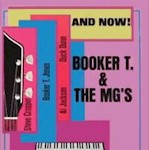
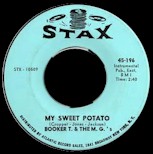

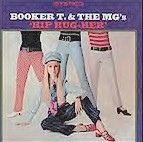
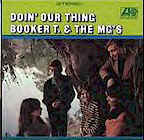

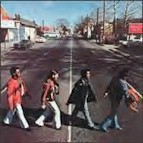
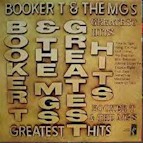
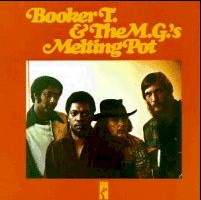
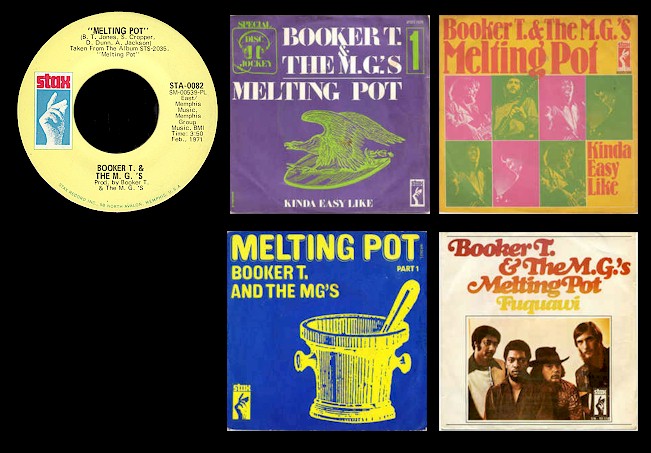
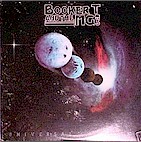
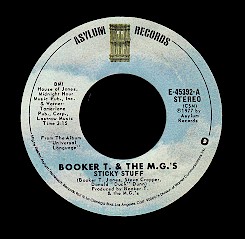

There was a problem loading comments right now. Please try again later.